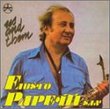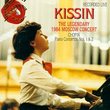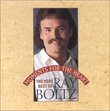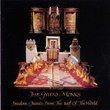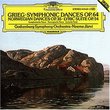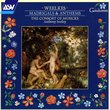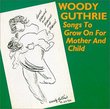| All Artists: Johann Sebastian Bach, Philippe Herreweghe, Collegium Vocale, Veronique Gens, Peter Kooy, Christoph Prégardien, Andreas Scholl Title: Bach - Mass In B Minor Members Wishing: 0 Total Copies: 0 Label: Harmonia Mundi (France) Release Date: 3/10/1998 Album Type: Import, Box set Genre: Classical Styles: Opera & Classical Vocal, Chamber Music, Historical Periods, Baroque (c.1600-1750), Classical (c.1770-1830) Number of Discs: 2 SwapaCD Credits: 2 Other Editions: Bach: Mass in B minor BWV 232 / Zomer, Gens, Scholl, Pr�gardien, Kooy, M�ller-Brachmann; Herreweghe UPC: 794881416523 |
Search - Johann Sebastian Bach, Philippe Herreweghe, Collegium Vocale :: Bach - Mass In B Minor
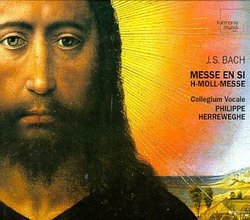 | Johann Sebastian Bach, Philippe Herreweghe, Collegium Vocale Bach - Mass In B Minor Genre: Classical
This recording is, quite frankly, a marvel. In the opening bars of the Kyrie, where tradition dictates a powerful, agonized cry for mercy, Philippe Herreweghe offers a gentle, awestruck plea that took this listener's bre... more » |
Larger Image |
CD DetailsSynopsis
Amazon.com essential recording This recording is, quite frankly, a marvel. In the opening bars of the Kyrie, where tradition dictates a powerful, agonized cry for mercy, Philippe Herreweghe offers a gentle, awestruck plea that took this listener's breath away. Extroverted movements like the Gloria, Et resurrexit, and Sanctus lack nothing in excitement; Qui tollis and Dona nobis pacem feel like fervent prayers. Herreweghe's luminous Collegium Vocale and skillful, sensitive instrumentalists make every gesture, large and small, seem exactly right. The soloists have attractive voices that blend with the period instruments and each other; while each is exquisite, tenor Christoph Prégardien and alto Andreas Scholl are magnificent. Underlying the entire performance is a sense of contemplative wonder that suits this deeply religious music perfectly. -- Matthew Westphal Similarly Requested CDs
|
CD ReviewsExquisite pitch, diction, and feeling: Exquisite Performance David W. Strauss | Abingdon, MD United States | 04/05/2000 (5 out of 5 stars) "Philippe Herreweghe will gain many fans with this recording. I bought it because I had worn out my Gardner recording. Talk about a revelation! Someone else already reviewed the differences in the opening Kyrie, so I won't retread that ground. Suffice it to say that EVERY chorus, aria, and duet is handled deftly but never "nose in the air" bombastic. The Crucifixus, with it's chromatically descending ostinato, transfixed an entire room full of people when I played it recently at our "Music Night". We have them once a month, rotating who chooses the program. I have been asked to include more of Herreweghe's recording of Bach's Mass in B Minor simply on the merits of the Crucifixus. I was deeply moved also by the wonderful "Credo Patrem Omnipotentem Factorum Coeli et Terrae". This recording is so solid, that when the Collegium Vocale resolve their chords at the end of each movement, you can hear the harmonic overtones generated by their purity of pitch. I have never heard such sublime singing. They also (and this is a tough one for most choirs) have their diction so unified that it is literally impossible to tell how many voices are singing - only that they're all singing perfectly together. Get this CD. You will not regret it. Five stars is not enough, but I wasn't given the choice to award more. Bravo, M. Herreweghe!" Herreweghe prooves himself again R. Gerard | Pennsylvania USA | 03/30/2003 (5 out of 5 stars) "It is true that the Mass in B-Minor has rather been "taken out of the church." Doubtless, it is a great work that requires virtuosity of all it's performers, but therefore, it is easy for a recording of the Mass in B-Minor to lose it sacred feel. Take, for instance, the recording of the Mass by John Elliot Gardiner: a fine recording, but the oversized, vibrato heavy chorus and bombastic exectution might leave you less then awed.Leave it to Philippe Herreweghe and his fine choir, instrumentalists, and soloists to surpass any recording of this work made. When Bach composed this mass near the end of his life (about 1748), he recycled his best works from his long, illustrious career. Some of these works went as far back as 1714. These recycled works were "tweaked" more or less for improvements, and so most of the Mass in B minor is actually Bach's compendium of what he thought were the highlights of his career.And what better way to show-off Bach's pinnacle work than with Herreweghe and the Collegium Vocale! Never using more than 5 singers per part, the choir is uniform. It is a large-sounding choir and their diction is clear as a bell and each line can be heard. The "Patrem omnipotentem factorem coeli et terrae," (Bach's reworked version of cantata #171) is an exciting rendition, as are the other choruses.The sopranos and altos (not including the male altos) in the Collegium Vocale are especially boyish sounding, a good quality for a Bach choral work, sounding closer to what Bach had in mind for his own boy choir in St. Thomas Church in Leipzig. Their voices are not vibrato-heavy, making the sound of the choir more appealingly antique and smooth.The church-like resonance of the recording gives the Mass it's sacred atmosphere that other recordings lack. Harmonia Mundi's sound recording quality ranks the label as one of the most loved among classical music listeners.The orchestra is similarly fine. But the real treasure is the soloists. Herreweghe's recordings always boast the some of the finest young soloists of this generation, and this record is no exception.Bach never heard his peerless Mass in B-Minor during his lifetime. But Herreweghe has sure done Mr. Bach proud. Strongly reccomended." One of my favorites Edmund Feingold | 03/15/1999 (5 out of 5 stars) "Philippe Herreweghe is one of my favorite period conductors. Most of his recordings ended up in my possession because of the great soloists he engages. For example, this disc attracted my attention because of Veronique Gens, Andreas Scholl and Christoph Pregardien (who made a very favorable impression on me in Christie's recording of Mozart's Requiem). Yet, every time I ended up liking the recording for more than just a solo voice. Herreweghe's interpretations are always intelligent and nuanced. They appeal to me so much more than the bombastic Bach performances I grew up hearing. Herreweghe is great conducting other baroque music as well. My other personal favorites include Purcell's Hail! Bright Cecilia (Herreweghe jumps on the latest authentic performance bandwagon by casting two alto arias with a high tenor; but without lowering the pitch!); and Schutz Geistliche Chormusic (a combination of choral pieces and several Geistliche Concerte for solo voices - it moved me to tears!)."
|

 Track Listings (12) - Disc #1
Track Listings (12) - Disc #1
